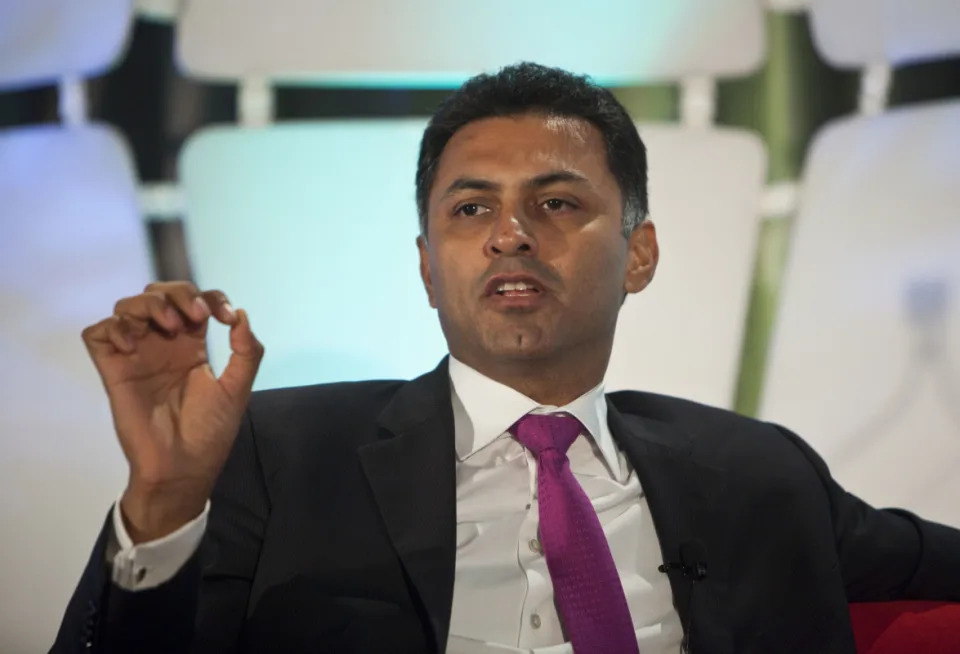By Michael S. Derby
(Reuters) - Federal Reserve Governor Lisa Cook said on Thursday that the central bank can take its time to assess a highly unsettled environment before moving interest rates again, amid risks inflation could worsen due to tariffs.
“Amid growing uncertainty and risks to both sides of our dual mandate, I believe it will be appropriate to maintain the policy rate at its current level while continuing to vigilantly monitor developments that could change the outlook,” Cook said in a speech at the University of Pittsburgh.
“For now, we can afford to be patient but attentive" with monetary policy "well positioned" to deal with what lies ahead, she said.
Cook spoke in the immediate aftermath of a significant acceleration of President Donald Trump's trade war against many other nations, even those which have been long-standing allies. On Wednesday, the president massively raised tariffs on a slew of other nations out of the belief it will bring more manufacturing back to the U.S. and close trade imbalances.
A wide range of economists recoiled from his actions, which exceeded many forecasters’ worst-case scenarios, while financial markets around the world saw big sell-offs amid souring sentiment over the outlook. The tariffs, which are import taxes paid by Americans rather than foreign producers, will likely drive up already high levels of inflation and depress growth, and could even drive the U.S. and other nations into economic downturns, many analysts say.
During her remarks, Cook warned that tariffs have created risks for price pressures.
“Inflation progress will stall in the near term, in part because of tariffs and other policy changes,” she said, adding “I currently place more weight on scenarios where risks are skewed to the upside for inflation and to the downside for growth,” while noting higher inflation and slower growth “could pose challenges for monetary policy.”
Cook also said she was watching for evidence that tariffs could drive up inflation pressures persistently.
Economists share the concern over the impact of tariffs. "The implied U.S. tariff rate now stands near levels higher than during the Great Depression and last seen in the early 1900s," Deutsche Bank economists said on Thursday. Morgan Stanley forecasters said “risks to inflation lie to the upside,” adding “we think tariff-induced inflation will keep the Fed on the sidelines and we remove our June rate cut."
Trump’s global trade war has put the Fed in a difficult position. Higher inflation argues for officials to hold steady or even potentially hike interest rates, while a weakening economy and souring job market could call for easier policy. Some in markets believe the challenging outlook makes it more likely the Fed could cut rates to try to limit the collateral damage of the president’s actions.
The Fed met last month to deliberate on monetary policy, with officials maintaining their overnight interest rate target rate range at between 4.25% and 4.5%, with the Federal Open Market Committee highlighting a very uncertain economic outlook.
In her speech, Cook said the economy started the year in a “solid position” even as many were unsure what lies ahead. She added she sees growth slowing and the unemployment rate rising a bit over the course of the year.
Cook had been scheduled to take questions following her formal remarks but that was canceled after a Zoom feed providing virtual access was attacked with racist remarks, Nazi symbols and pornography. She is the first Black woman to serve on the Fed's board.
It was not clear whether the attack affected the on-site presentation. The University of Pittsburgh did not immediately respond to requests for comment on the incident and whether it impacted the speech. Details of the feed were widely available, with access information shared on social media.
The hack of the Zoom feed was not the first time something like that happened to a Fed official. In 2023 an entirely virtual appearance by Fed Governor Christopher Waller suffered a similar fate, forcing that event to be canceled.





